Giant Propel 2023 unveiled - lighter, faster and a little more user-friendly Tour de France stage winner
The latest Propel range includes the Advanced SL used by Team BikeExchange-Jayco at this year's TdF and features new tube shapes, aero cockpit and CADEX wheels
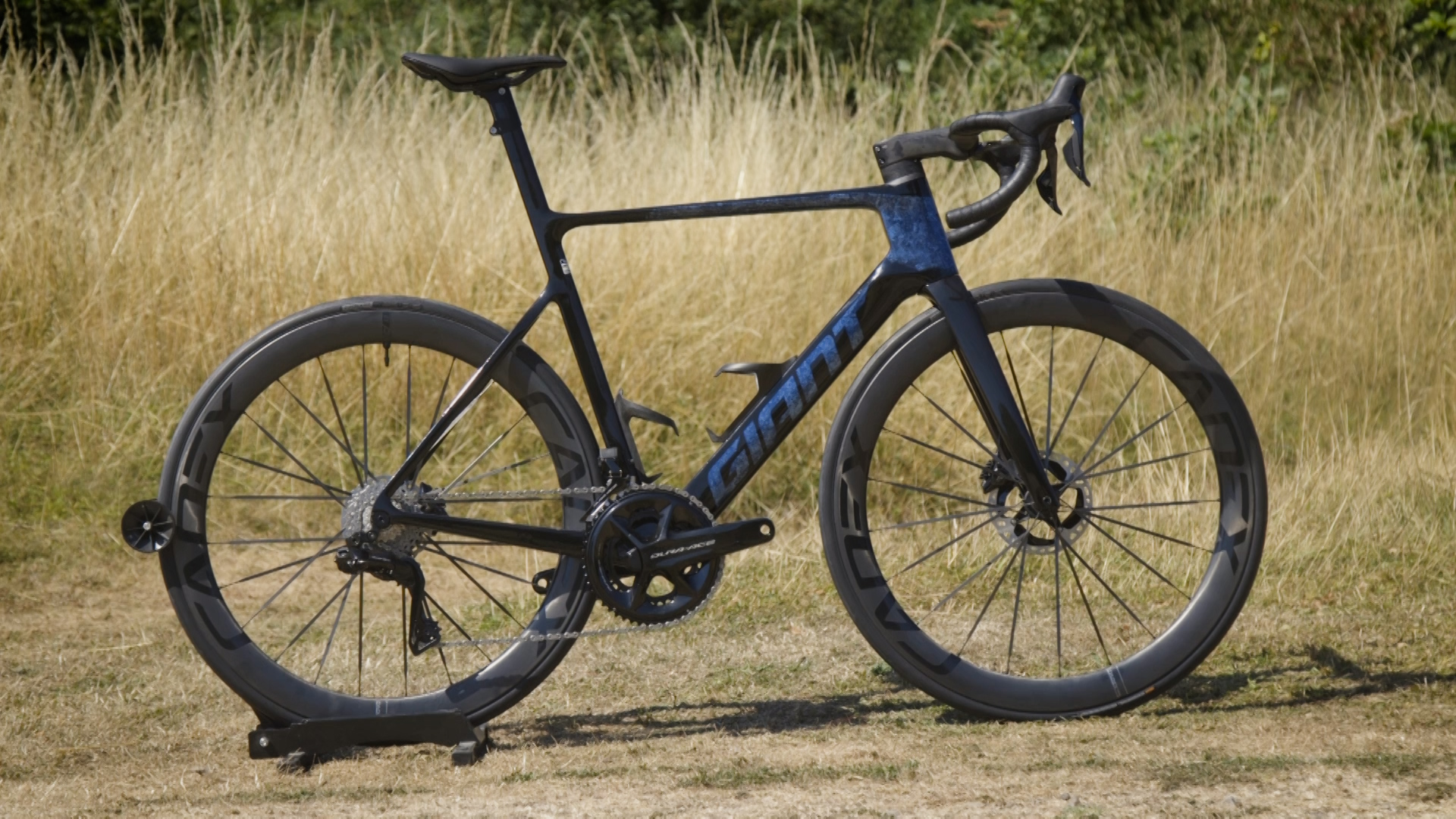
The latest race content, interviews, features, reviews and expert buying guides, direct to your inbox!
You are now subscribed
Your newsletter sign-up was successful
As far as debuts go, the new Giant Propel Advanced SL’s initial outings were a resounding success.
Introduced to the world at this year's Tour de France, the aero race bike was piloted to victory first on stage 3 by BikeExchange-Jayco’s Dylan Groenewegan and then again on stage 14 by teammate Michael Matthews. The first win was in a tight bunch sprint. The second was an audacious solo attack on a hilly stage, demonstrating both the strength of the Australian outfit and the versatility of the Propel.
Giant says the new iteration, the first update in four years and part of a range that also includes the Advanced Pro and Advanced models, was ‘built to win big races’ and it's evidently doing just that. To help it to be first across the line, the new Propel Advanced SL is both lighter and faster, which is seemingly de rigueur for all updated aero bikes these days.
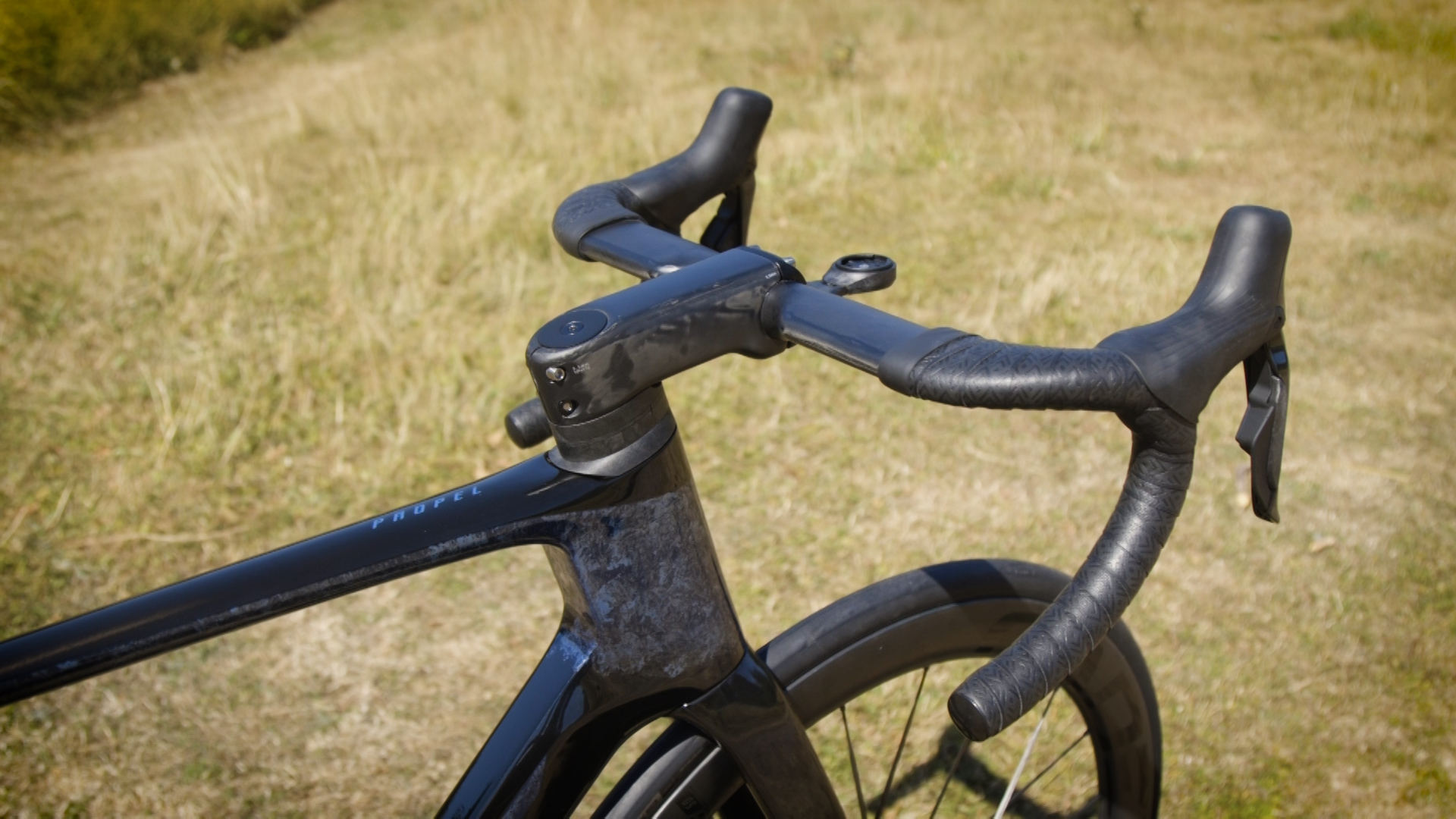
The frameset is made using a professional grade raw carbon fiber that Giant uses across its top-tier offerings. Also used is a resin that includes a microscopic polymer, which lends additional strength to the layers of composite. It’s called Carbon Nanotube Technology (CNT) and Giant says it makes the Propel 14 percent more resistant to impacts.
Other technology used includes a manufacturing process which allows the front triangle of the Advanced SL to be made with larger, and fewer, sections of composite. The result is less junctions, which Giant says makes it lighter and stronger. Weight is reduced too through a ‘fusion process’, which sees the top tube ‘grafted’ to the seat tube using filament to hand weave the tubes together before re-moulding them under high pressure and heat to strengthen the junction.
It helps add up to a frame that is 225 grams lighter than its predecessor, with the new Advanced SL frame weighing 845 grams. The complete frameset, including mech hangers and headset, is said to be almost 14 percent lighter than the outgoing model.
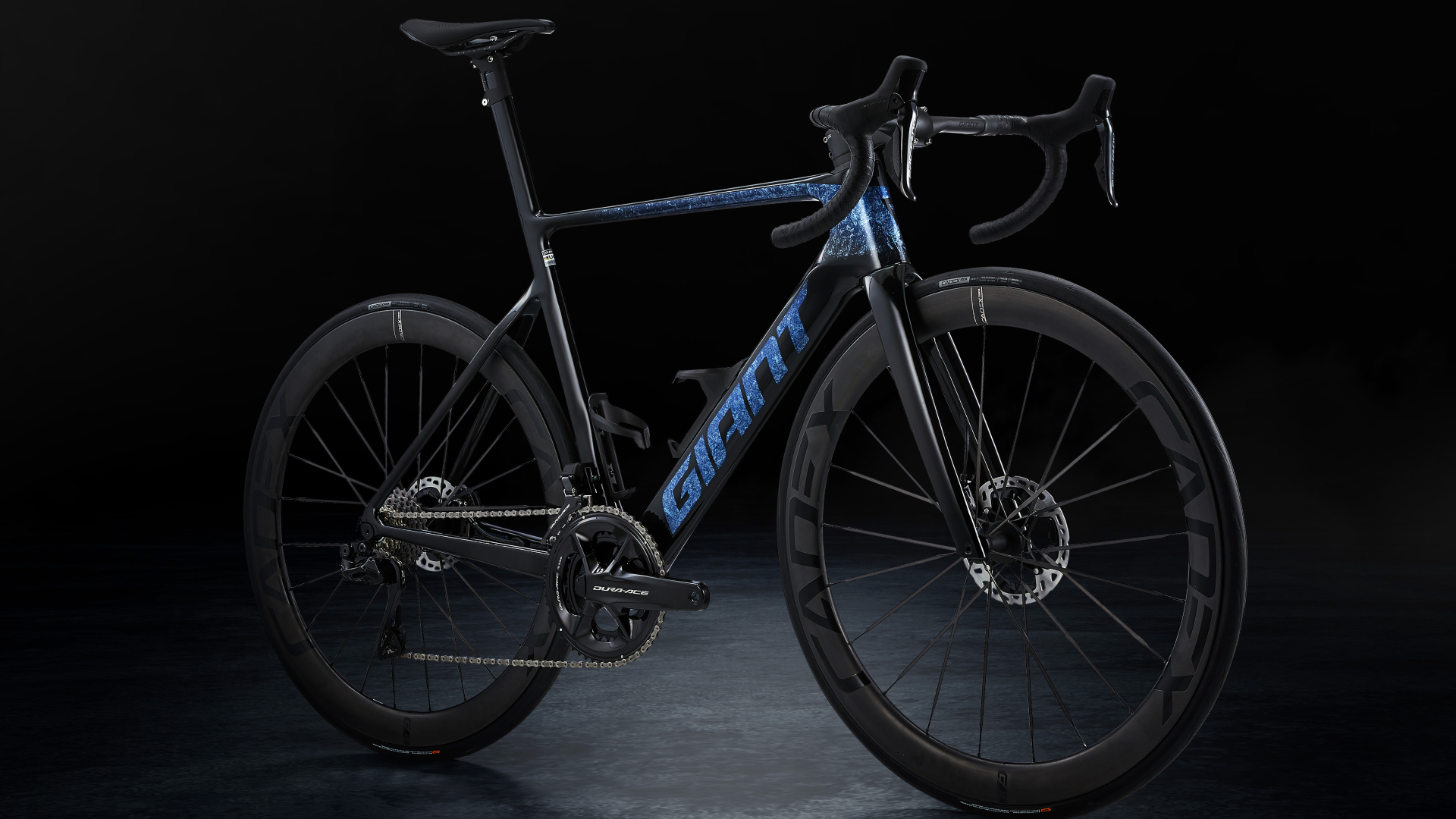
Giant claims significant gain in stiffness too. Its testing shows the new frame to be almost 10 percent stiffer than the last generation, with much of this found in the modified head tube, down tube and beefy Powercore bottom bracket area. To balance this stiffness on the road, Giant says it redesigned the Advanced SL’s seat tube, asymmetric chainstays and Vector integrated seatpost, reducing their diameter, to shed a few grams, but importantly helping to smooth out the ride.
The latest race content, interviews, features, reviews and expert buying guides, direct to your inbox!
Indeed, Giant claims it has “85 percent added rear-end compliance” over the previous model, which combined with the 30mm tyre clearance suggests plenty of comfort for those longer rides. Given that most of its prospective buyers won’t be going elbow to elbow with Groenewegan in a bunch sprint, this could be as much a selling point as the increased stiffness itself.
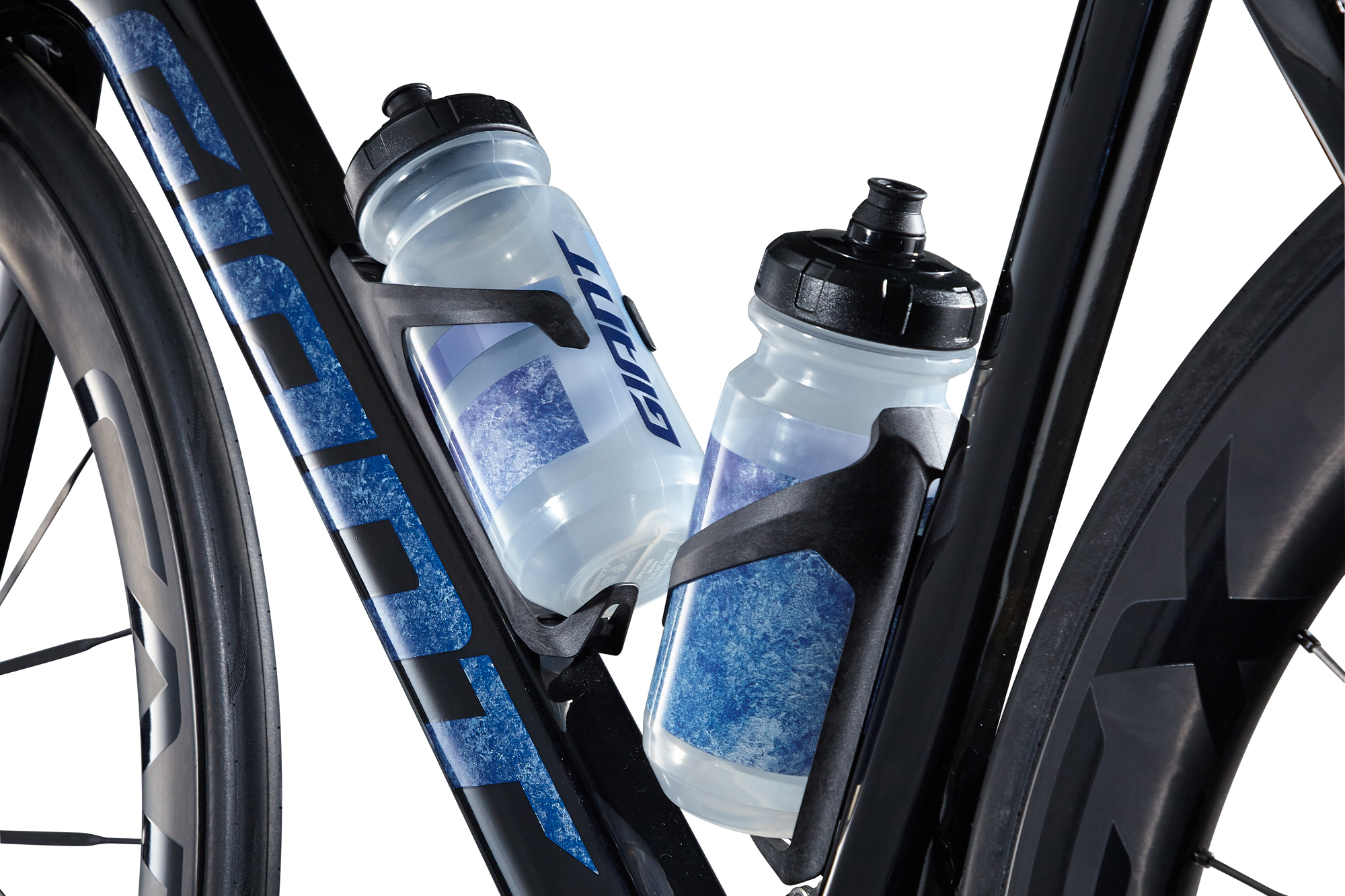
To make the Propel faster, Giant used a combination of airflow simulation software, wind tunnel testing (including using a ‘dynamic’ mannequin for precise and repeatable leg movements) and real-world application. The software helps create the tube shapes before they hit the tunnel and then the road. This ‘AeroSystem Shaping’ has led to what Giant describes as “truncated ellipse airfoil shapes” across the down tube, seat tube and seat stays as well as a redesigned frontal area, an area crucial to the reduction of drag. There’s even two different bottle cages designed to improve the aerodynamic performance of both the down tube and the seat tube.
The facelift to the all-important frontal area continues with the newly designed Contact SLR and SL Aero bars and stem. The bars feature a flattened profile with a frontal section that Giant says has been "aero-optimized". Perhaps with pro riders in mind, who are now looking to adopt new aerodynamically beneficial positions now that the 'puppy paws' position has been outlawed, the outer area of the tops is raised to add a dose of comfort and stability. Elsewhere the compact bars are, as you might expect, with a short reach and a shallow drop for efficient movement between the hoods and drops.
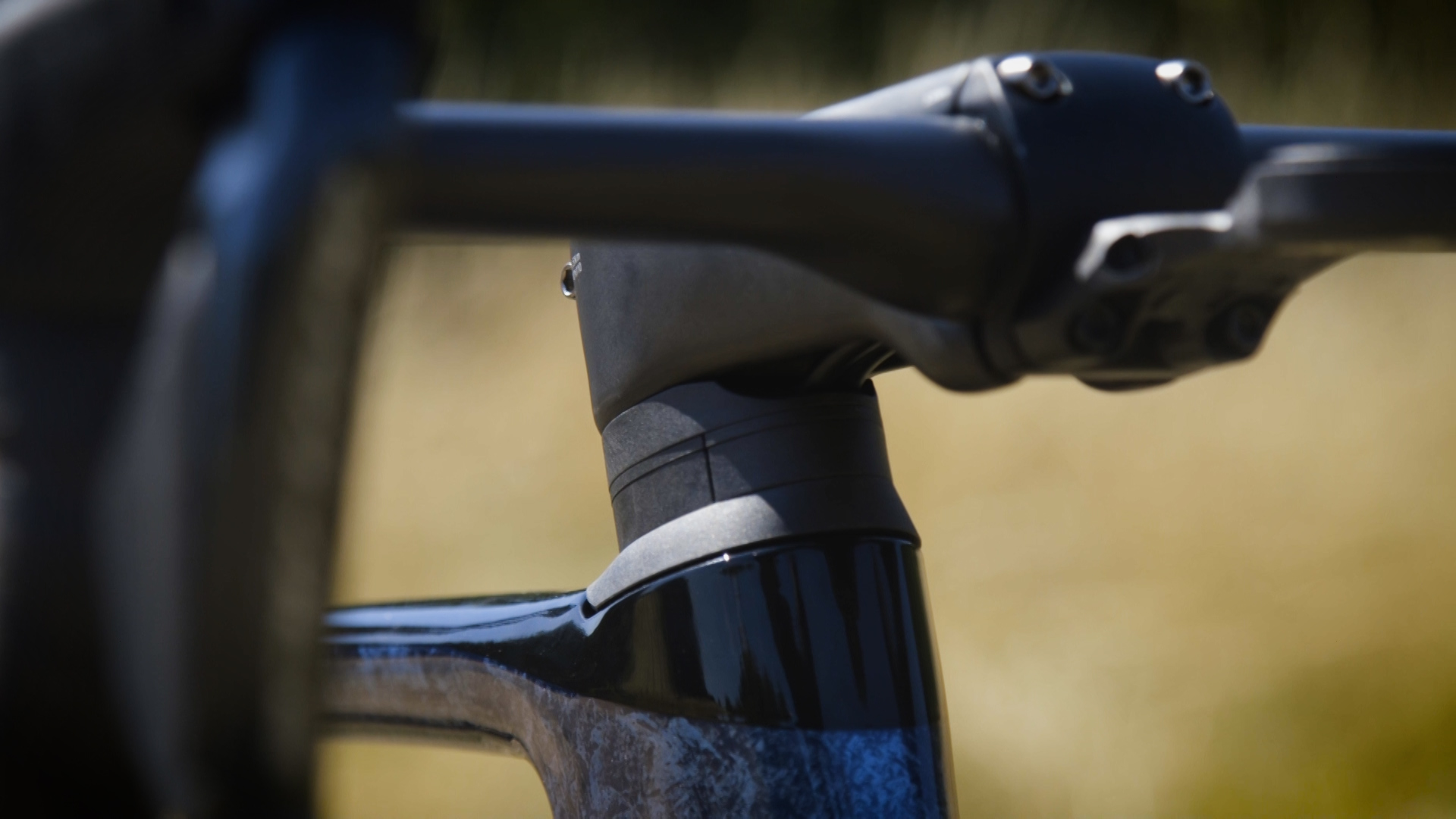
Designed alongside the new D-shaped OverDrive Aero steerer, the Contact SLR and SL stems integrate stem cap, spacers and headtube to help improve aerodynamics, with the faceplate shape "ensuring smooth airflow", according to Giant.
The result, when taking into consideration the redesigned bars and stem as well as the new CADEX 50 wheels and Aero tyres, is a bike that Giant says is 27 seconds faster over 40km at 40kph thanks to a reduction in drag by more than six watts. It’s also a bike that looks fast and, in some ways, pretty familiar. The deeper headtube profile for example is reminiscent of both the recently updated Trek Madone and Cervélo S5.
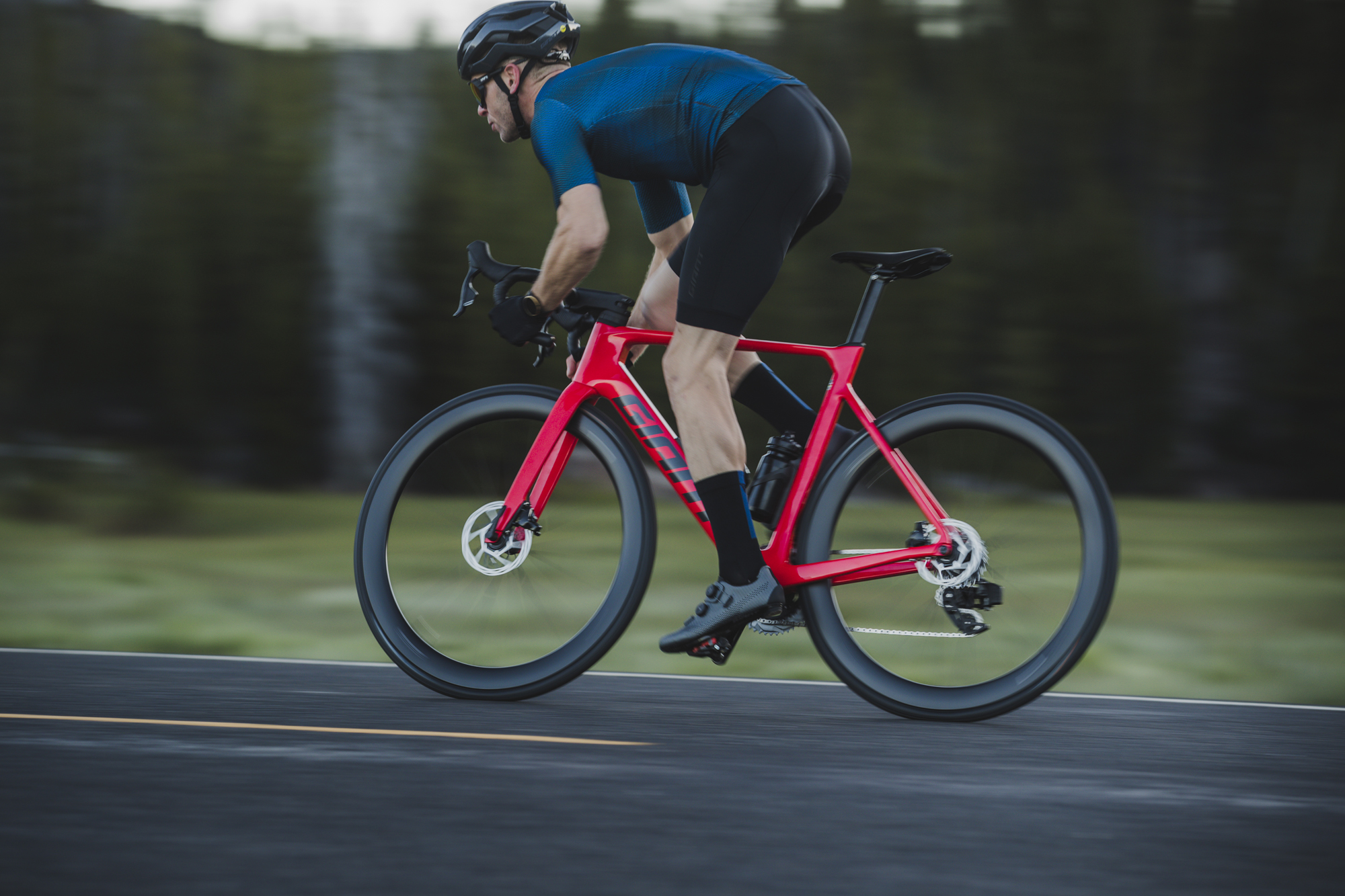
Some changes, however, are less visible but no less important. The new bar and stem make for a cockpit that’s far easier to adjust than before. The previous Propel saw the cables and hoses routed above the stem and then into the frame behind the steerer. The new OverDrive system instead sees them routed through the bars, under the channeled-out stem and into the frame via a d-shaped steerer. In essence, it’s aesthetically cleaner and more aerodynamic but vitally makes adjustment and maintenance much less of a headache. It’s safe to assume the Team BikeExchange-Jayco mechanics were happy with this development above all others.
The new Giant Propel range, including the Advanced SL, will be available in the UK sometime in November.The SL will be offered with 12-speed Shimano Dura-Ace Di2 and CADEX 50 wheels and Aero tyres.
The lower-specced Advanced Pro and Advanced models, feature builds that include SRAM Force and Rival AXS as well as Shimano Ultegra Di2 groupsets. Pricing in the UK and US has yet to be confirmed.
For more information visit giant-bicycles.com
First impressions
Cycling Weekly's Video Editor Sam Gupta had a chance to view the new Propel Advanced SL up close. Here are his thoughts:
There's no doubting what this bike is trying to be. It's very much sticking to the core principles that the Propel has always been known for. Full speed, everywhere. Looking at a few recently updated models, there has been a tendency from some manufacturers to build in features which broadens a race bikes capabilities into disciplines which can sometimes leave the bike feeling a little confused. Not with the Propel. Giant is still very clear that this is a race bike to go fast on with no compromise.
Giant has reduced weight, stiffened up the frame and made the bike more aero - all with the numbers to back it up. The key takeaway that I took after spending some 'hands-on' time with the bike is that if it were to be silhouetted, it would be hard to pick it out in a line up against it's key rivals. The frame shape is predictable to say the least. Either manufactures are all honing in on the fastest shape, or the UCI's rules are squashing creativity.
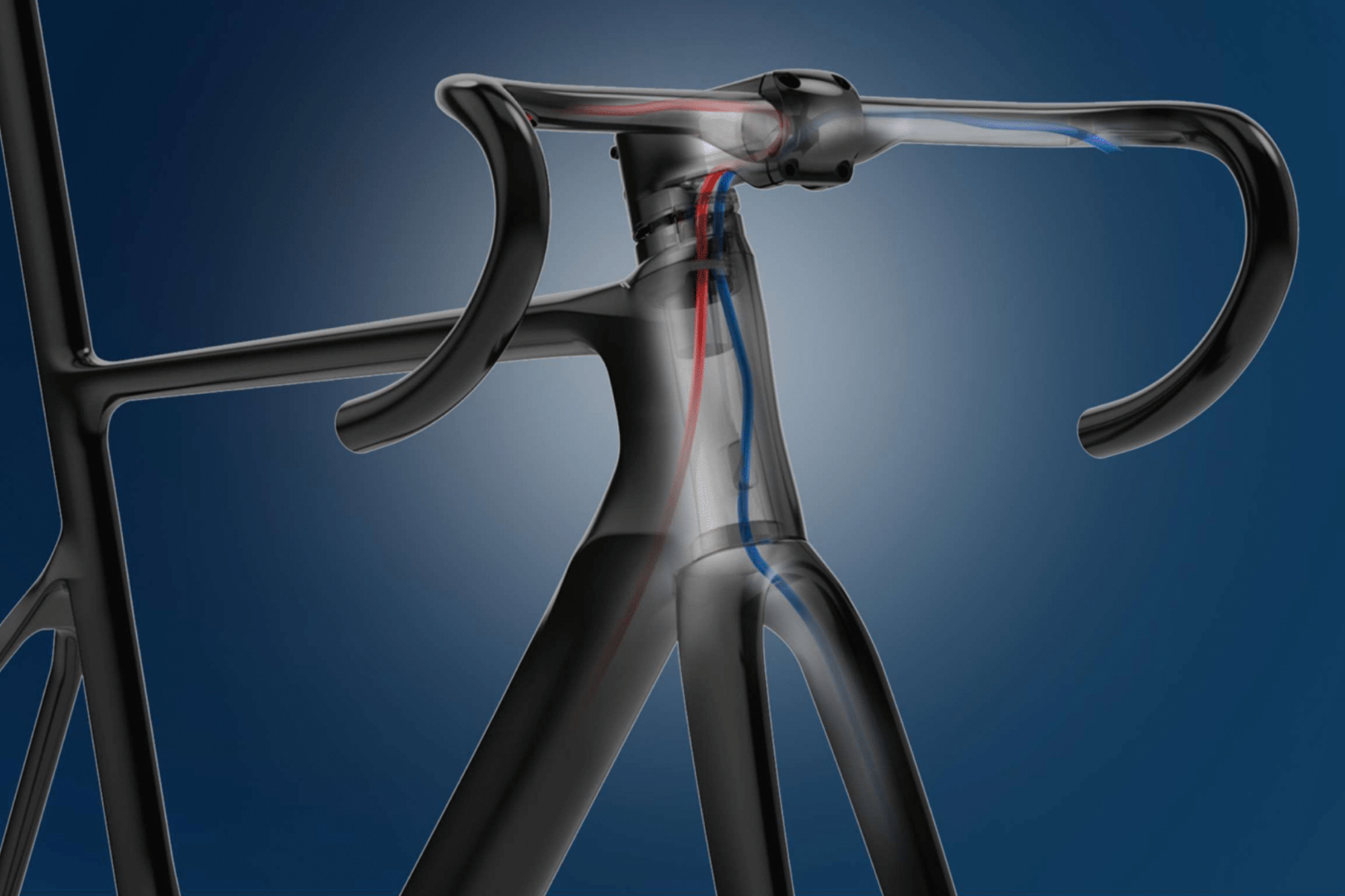
I think one of the best things the bike has going for it is the revised routing of the hoses through the cockpit. In my mind, this is a huge jump forwards in creating a system which works very well for team mechanics, shop mechanics and anyone who wants to make an adjustment to their bike at home without needing to take on a three- hour brake bleed. It's also the feature which I'm most excited about.
Overall, it's a smart looking bike that was built with one sole purpose and that's very much reflected in the final product. I have no doubt it'll be fast, much like it's predecessors and quite frankly, I just hope they have my size available for testing.
Luke Friend has worked as a writer, editor and copywriter for over twenty five years. Across books, magazines and websites, he's covered a broad range of topics for a range of clients including Major League Baseball, Golf Digest, the National Trust and the NHS. He has an MA in Professional Writing from Falmouth University and is a qualified bicycle mechanic. He has been a cycling enthusiast from an early age, partly due to watching the Tour de France on TV. He's a keen follower of bike racing to this day as well as a regular road and gravel rider.